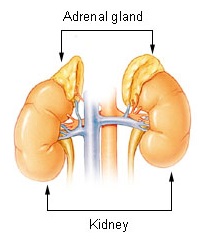The purpose of this article is to review nutritional issues related to alcohol abuse. I do not claim that other forms of treatment are not needed. The psychological aspect of alcohol dependence and need for counseling is important. For the purpose of this article I am focusing on nutrition as it is within my area of expertise and something which I feel is often over looked when it comes to alcohol addiction.
Alcohol and The liver
Alcohol is detoxified in the liver. Two enzymes are responsible for this are:
Alcohol dehdrongenase
This enzyme convert alcohol into aldehyde. The nutrient NAD+ is needed for this to happen.
Aldehyde dehydrongenase
Once alcohol is converted into aldehyde, the aldehyde must further be detoxified. In fact, it is the aldehyde which is believed to be the cause of many harmful effects of alcohol. Aldehyde is broken down into acetate, which is eventually converted into long chain fatty acids.
Leptin is a hormone which helps to regulate appetite and energy metabolism. High levels of leptin are known to contribute to fatty liver. It is elevated with chronic alcohol use.
Ways alcohol causes fatty liver
- Increase fatty acid production
- Oxidative stress in liver from processing alcohol
- Increased leptin
Alcohol and blood sugar
Basic nutritional facts about caloric content is as follows:
- Carbohydrates have 4 calories per gram
- Proteins have 4 calories per gram
- Fats have 9 calories per gram
What is not appreciated is how many calories are in alcohol
- Alcohol has 7 calories per gram
This makes alcohol very calorie dense. This is one reason why alcohol causes weight gain.
Alcohol also causes and immediate rise in blood sugar. However, in large amounts and over time it actually lowers blood sugar. Alcohol can lower blood sugar so much that it leads to hypoglycemia.
Hypoglycemia is a state of too little blood sugar. Symptoms of hypoglycemia include:
- Sweating
- Tremors
- Increased heart rate
- Anxiety
- Hunger
- Dizziness
- Headaches
- Visual disturbance
- Decreased mental acuity
- Confusion
- Depression
Hypoglycemia causes people to crave things that raise blood sugar; either sugary foods, or alcohol. This causes a viscous cycle, as those foods don’t elevate blood sugar for long, before leading to another bought of hypoglycemia.
B vitamin deficiency
Alcohol can cause deficiencies in B vitamins. Once of particular importance is vitamin B1 (thiamine). B1 is essential in order to convert sugar into energy. Without enough B1 people feel tired. They will also tend to crave simple sugars because the body is trying to get more energy. Unfortunately, without B1 it can’t convert sugar into energy.
Cravings for sugar and snacks is commonly caused by a B1 deficiency. In those with alcohol dependence instead of craving sugar to raise blood sugar, they will want alcohol instead.
Additional support for the adrenal glands may be needed. The stress hormone cortisol is produced by the adrenals and has a profound effect of blood sugar regulation. High cortisol raises blood sugar. It cortisol is too low it can cause hypoglycemia.
Go to this page for more information on adrenal support and supplementation
Nutrients and Alcohol
Alcohol will deplete the body of nutrients. People who drink also tend have alcohol instead of food, which means there may be less nutrients coming in.
Coconut oil and MCTs
The medium chain triglycerides (MCTs) in coconut can be easily converted into energy without raising blood sugar. For this reason, MCTs may be useful in conditions where blood sugar is not well regulated.
Minerals
The two enzymes that detoxify alcohol in the liver (Alcohol dehdrongenase and Aldehyde dehydrongenase) depend on zinc. Alcohol also may interfere in the absorption of zinc from the digestive tract and increase the loss of zinc in the urine. Therefore drinking can lead to zinc deficiency.
Magnesium status may also be low. Alcohols causes increase urination of magnesium.
Anti-oxidants
Lipid peroxidation is a process in which free radicals degrade fats in the body causing them to harm cells. This is on the main ways that alcohol leads to liver disease.
Antioxidant nutrients are needed to protect the body from free radicals. They also tend to be low in alcoholics, which makes the damage caused by lipid peroxidation worse. Key nutrients needed to protect the liver include: vitamins A, C, E and selenium.
Carnitine is a supplement commonly used to enhance energy production. The body needs it to converts fat into energy. Alcohol consumption seems to deplete the body of carnitine and supplementing can help to inhibit alcohol induced fatty liver disease.
Fatty acids
Alcohol may interfere in the metabolism of essential fatty acids. Fish oil may therefore be helpful. Fatty acids profiles may also be tested on blood work.

